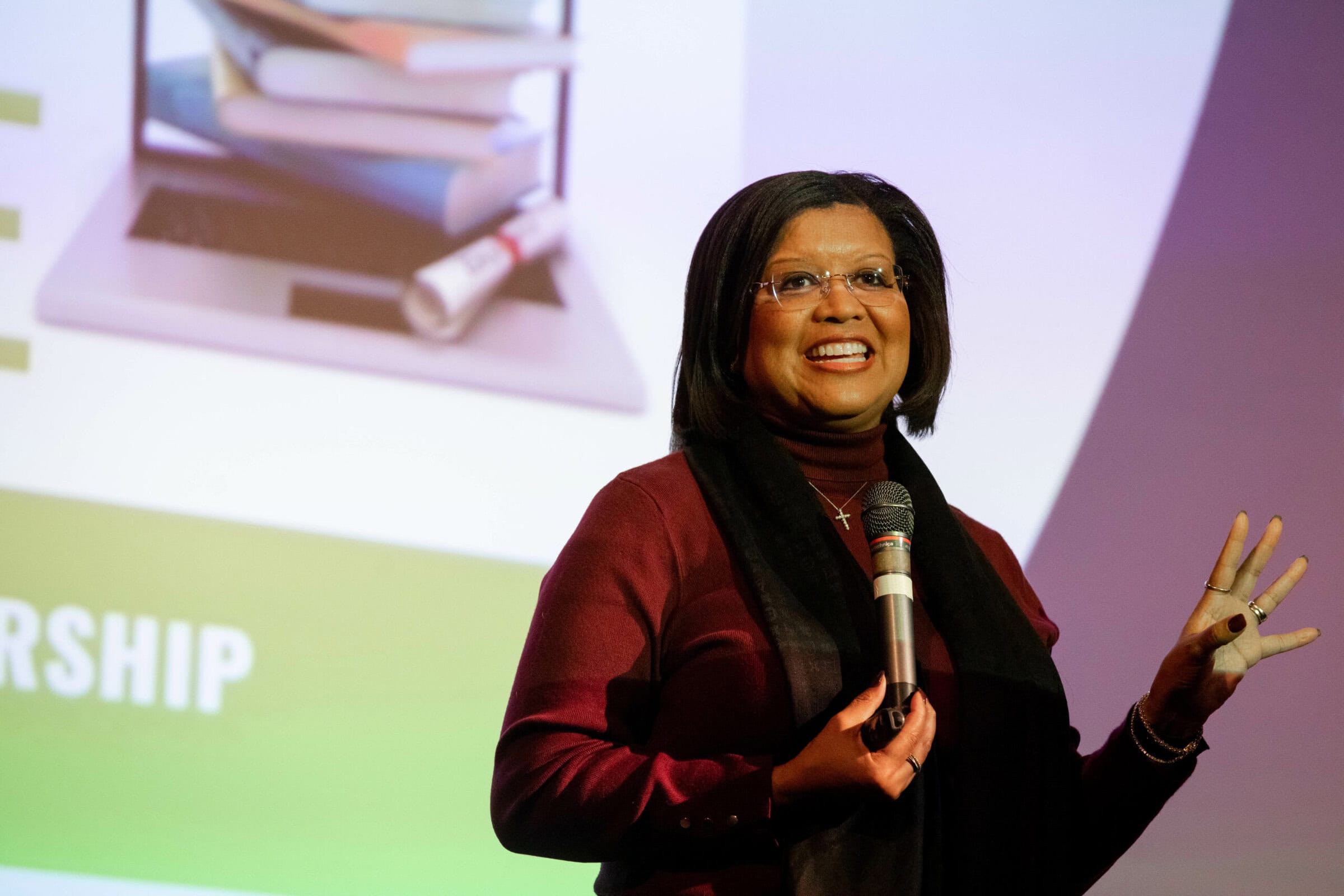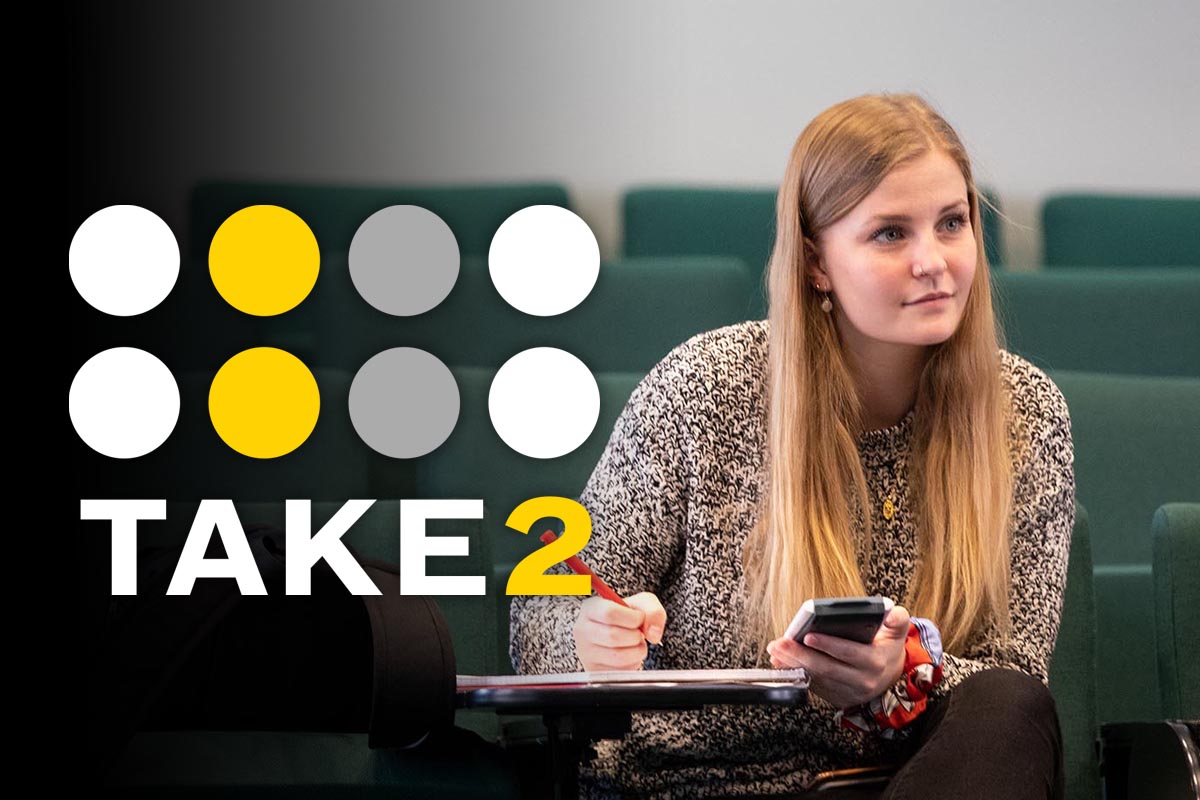Randolph’s Student Success Summit focuses on becoming a student-ready campus

Tia Brown McNair speaks during Randolph’s Student Success Summit.
The work Tia Brown McNair does centers on two core principles: Everyone on a college campus is an educator, regardless of their role, and every student deserves access to a high quality education.
She’s written about it in two editions of Becoming a Student-Ready College: A New Culture of Leadership for Student Success and talks about it regularly in her work at the American Association of Colleges and Universities (AAC&U).
McNair is the vice president in the AAC&U’s Office of Diversity, Equity, and Student Success and executive director for its Truth, Racial Healing, and Transformation Campus Centers.
On Wednesday, she gave the keynote address during Randolph College’s Student Success Summit, which focused on President Sue Ott Rowlands’ vision of becoming a student-ready campus.
The basic idea is flipping the model away from if students are ready for college to if colleges are ready for them. It focuses on how an institution can best serve students by looking inward, analyzing equity gaps or why certain processes work for some students but not others.
“It’s about institutional change and transformation,” McNair said.
But the term isn’t a one-size-fits-all.
“There is no one definition of what it means to be student ready,” she said. “It’s different for every campus, centering on who you are as an institution—your culture, priorities, goals, values—and who your students are.”
During her keynote, McNair discussed the traits of student-ready leaders (among them: they know their students, how they’re doing, and what they need to succeed).
She also emphasized the importance of educating the whole student, going beyond just academics to offer social and emotional support.
“When students enter your institution,” she said, “you’re making a commitment to them.”
After the keynote, faculty and staff continued the conversation during a working lunch, discussing topics ranging from career preparation to diversity, equity, and inclusion, to mental health.
“This cannot be something that just comes out of the president’s office,” McNair said. “It starts with you.”
Tags: student success summit
